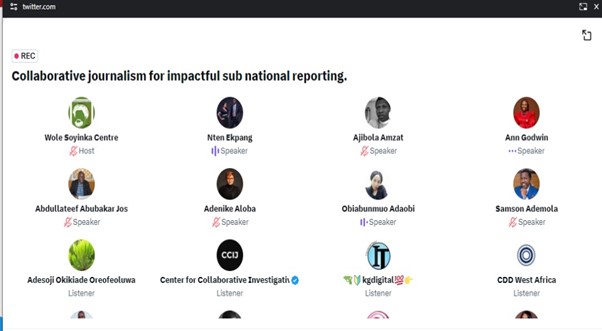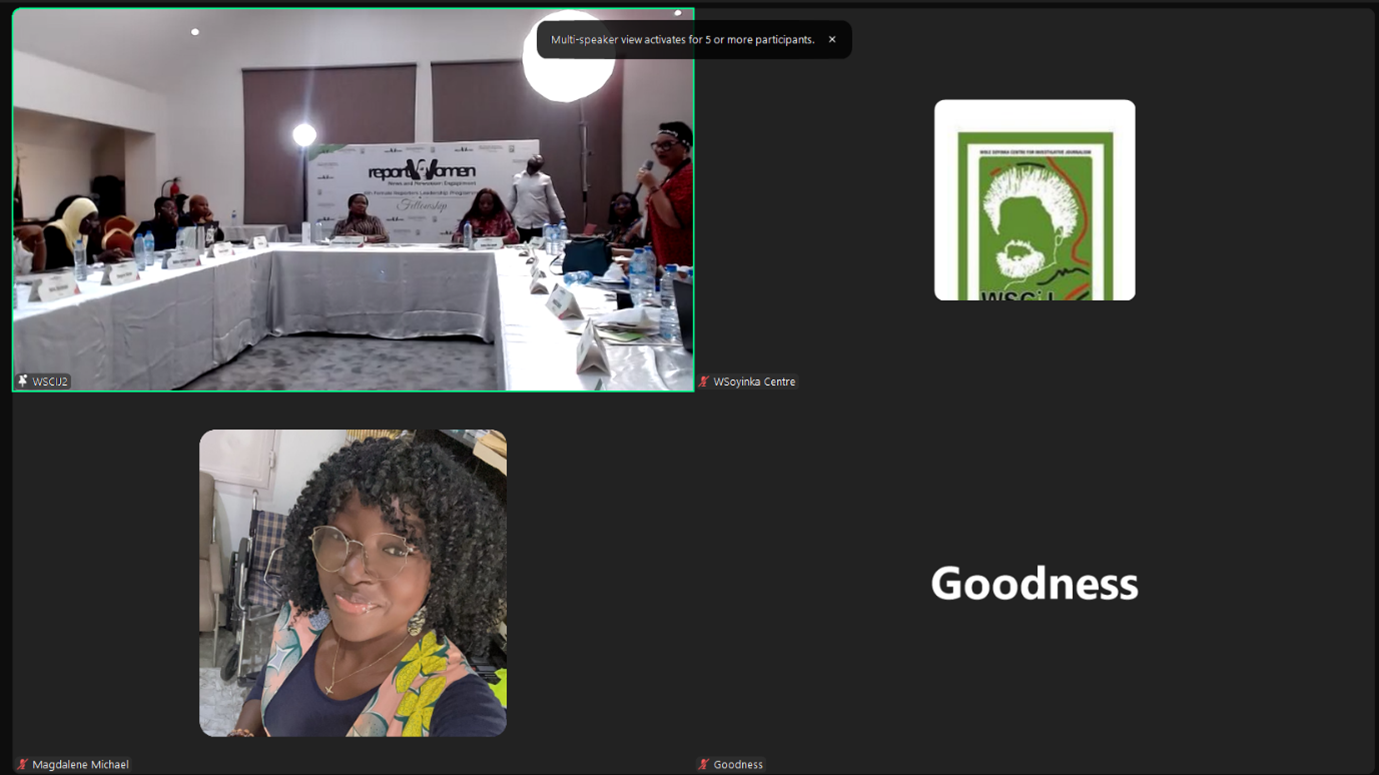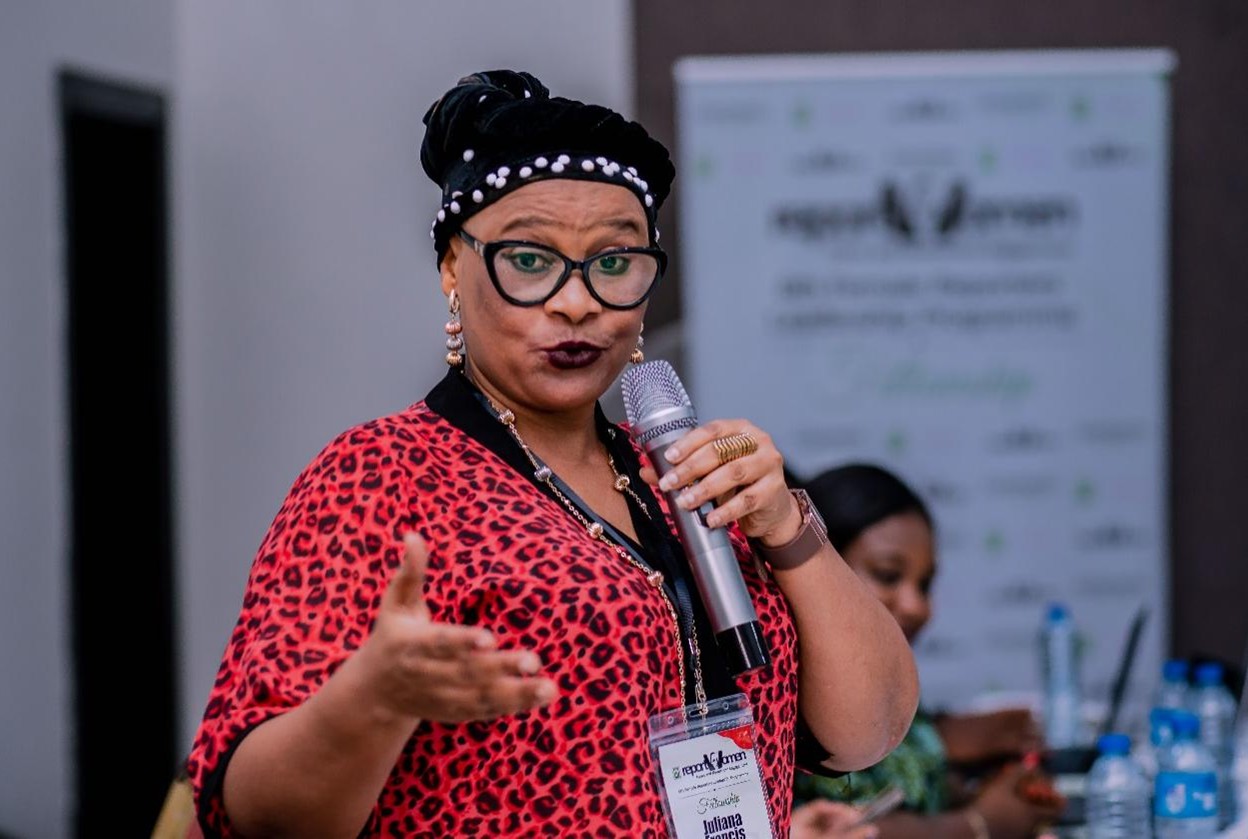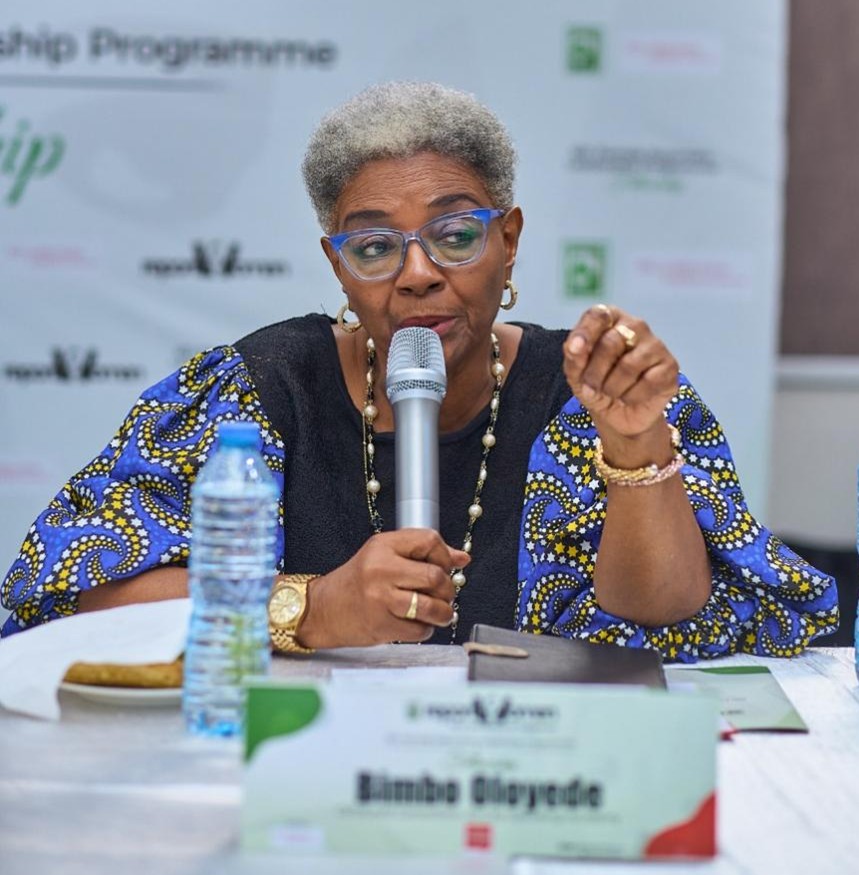Discussants emphasised the vital role of collaboration between journalists and media organisations in driving impactful reporting at the subnational level during the Tuesday, 16 April edition of the Journalism and Society Conversations by the Wole Soyinka Centre for Investigative Journalism (WSCIJ), titled, ‘Collaborative journalism for impactful subnational reporting’. The session focused on the need for internal and external collaborations in storytelling, story amplification and diverse storytelling formats for media houses and investigative reporters.
The session featured Ajibola Amzat, Africa Editor, Center for Collaborative Investigative Journalism (CCIJ); Adenike Aloba, a development expert; Abdulateef Jos, Executive Director, Solacebase; Ann Godwin, Bureau Chief, South-South, Guardian Newspaper; Adaobi Obiabunmuo, Programme Manager, Progressive Impact Organization for Community Development (PRIMORG) and Nten Ekpang, Editor, Trust TV who moderated the conversation.
The opening remarks given by Samson Ademola, a programme officer at the centre, on behalf of the organisation’s executive director and CEO, Motunrayo Alaka, underscored the significance of collaborative journalism in addressing local issues. Highlighting successful partnerships with various media outlets and organisations, Ademola emphasised the power of collaboration in pooling resources, amplifying investigative reporting, and fostering accountability in Nigeria’s media landscape. Through initiatives like the Collaborative Media Engagement for Development Inclusivity and Accountability (CMEDIA) and past collaborative projects, he noted that the WSCIJ stands ready to facilitate impactful journalism that sheds light on subnational issues and promotes transparency.
Ajibola underscored the importance of media collaboration at all levels of journalism- internal and external. He noted that internal collaboration involves reporters, photojournalists, and videographers within the same news media, while external collaboration occurs between news media outlets, especially on investigative stories. Ajibola advised journalists to explore opportunities presented by beat associations, existing media networks, collaborative platforms and local and international journalists doing similar works.
Encouraging journalists to broaden their storytelling horizons, Aloba highlighted the importance of diversifying mediums beyond written words to maximise impact. She emphasised meeting readers’ expectations beyond text, stressing the potential of multimedia messages, television, and radio in amplifying subnational issues. Aloba advised media professionals to align with audience preferences and seek technical assistance for content creation, especially for complex formats like videos, interactive graphics, and immersive experiences.
Jos explained Solacebase‘s collaborative efforts, detailing their partnership with several radio stations to amplify their investigative reports on rural communities in the North-West region of Nigeria. He highlighted collaborative efforts in broadening coverage and incorporating diverse viewpoints. The broadcast journalist who has over 20 years of professional experience emphasised how collaboration fosters public discourse and action, facilitates resource sharing, improves data accessibility, alleviates individual workload and elevates report quality. Jos highlighted collaboration challenges, such as journalist safety and managing time zones for international projects. He also noted the importance of upholding professional ethics during collaborations.
Collaboration, integrity, and persistence in journalism were the focus for Godwin. Reflecting on her investigation of the East-West road across Delta, Akwa Ibom, Bayelsa and Rivers states, the South-South Bureau Chief of Guardian Newspaper confirmed that her collaboration with stakeholders- government officials, residents of affected communities and fellow journalists provided insight, information and data for her story. She also underscored the pivotal role of data in strengthening stories. Amidst fostering collaboration, Godwin reiterated the importance of maintaining integrity and credibility by exploring all angles of a story. She recommended that journalists remain focused, avoid unnecessary competition, and seize collaborative opportunities. Recalling her seven-year coverage of the East-West road, Godwin reinforced the importance of persistently reporting until authorities take action.
Another panellist, Obiabunmuo, said investigative reporting can be expensive and life-threatening. Therefore, Corporate Society Organisations (CSOs) have continued supporting media houses and journalists. She mentioned PRIMORG’s collaboration with WSCIJ in 2021, which exposed metering issues and power supply challenges in Nigeria’s electricity sector. Obiabunmuo said this led to improved services in some of these rural communities.
The Journalism & Society Conversations by WSCIJ brings stakeholders together to delve into the pressing issues of press freedom challenges, regulatory frameworks, and the pivotal role of investigative journalism in holding the government accountable and contributing to nation-building.








